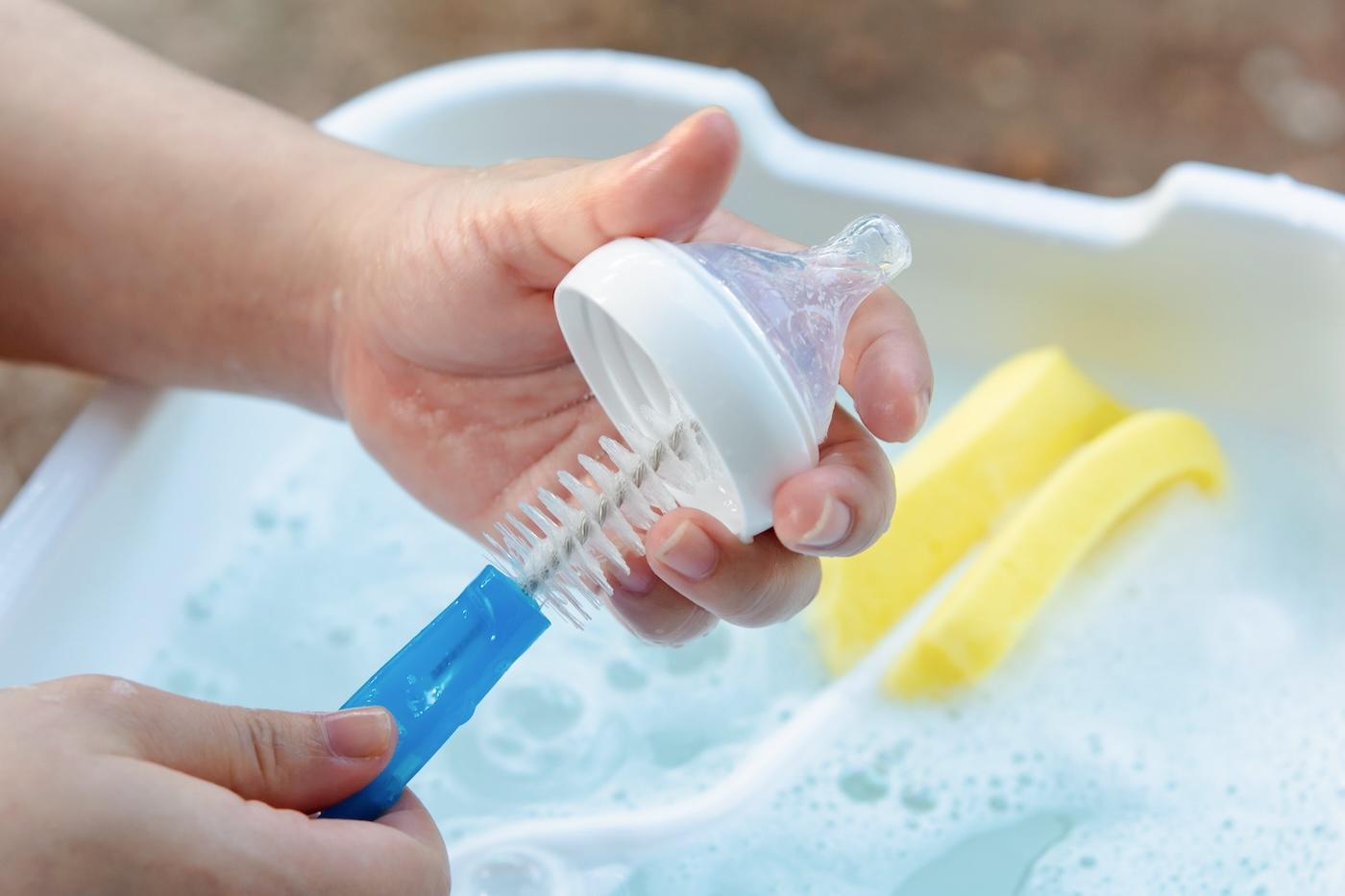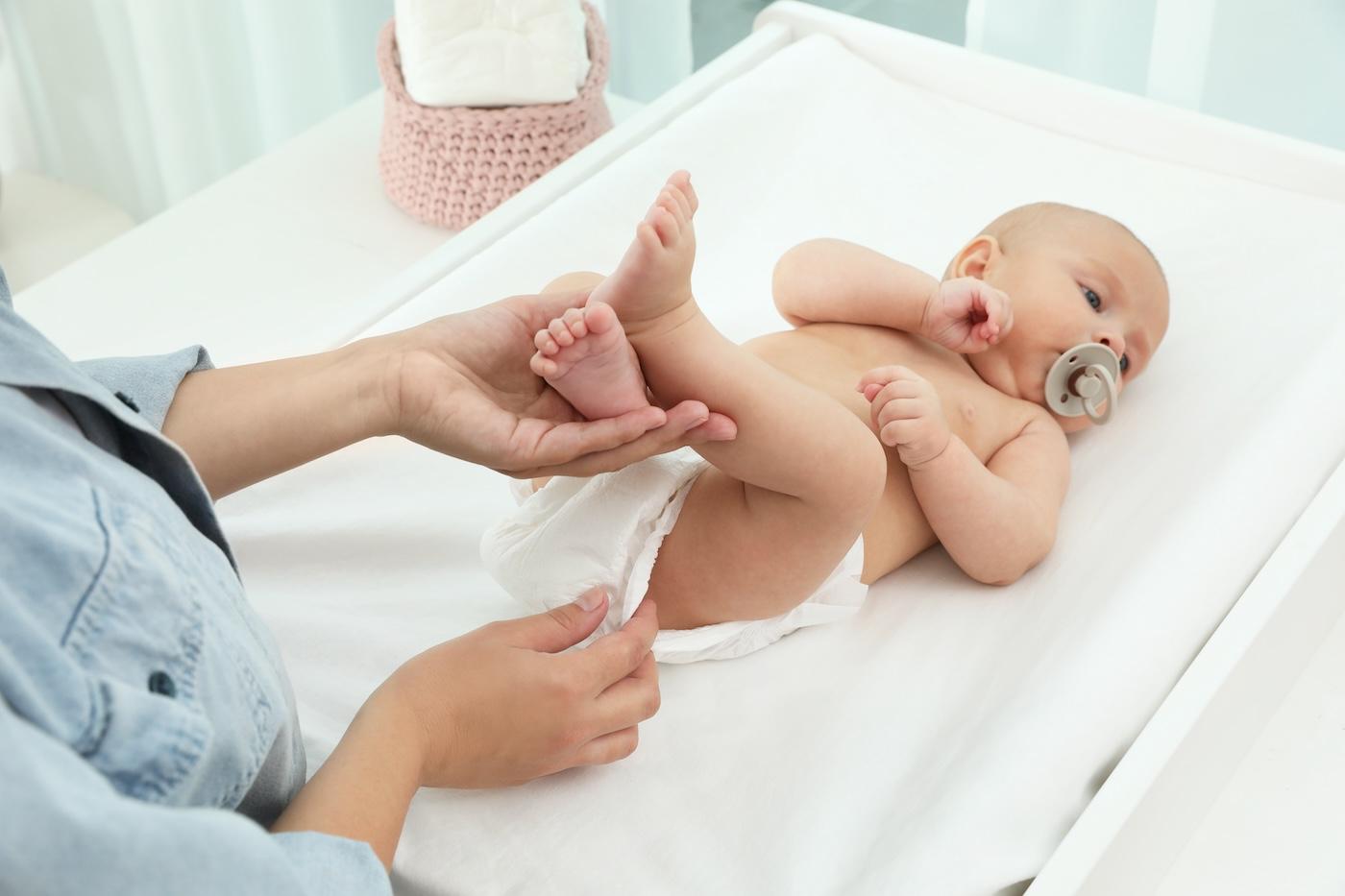BABY
When Do Babies Point, Clap, and Wave for the First Time?
These “party tricks” show how much your baby is developing physically and socially!

Written by
Happiest Baby Staff

Your baby learning to point, clap, and wave aren’t just precious to witness—these new “party tricks” demonstrate your bub’s developing coordination skills and social awareness.
Pointing, clapping, and waving require some coordination and fine motor skills. But the bigger milestone is that your baby is engaging with the world around them and socializing with you. These gestures are all early (but important!) forms of communication from your baby. Your tiny tot may not be ready to vocalize many words yet, but they are still “conversing” with you through these actions.
Like all milestones, there is a healthy range for when babies start to point, clap, and wave—and these gestures also sharpen over time (for example, the first time your baby points, don’t expect to see a perfectly outstretched pointer finger). Here’s when to expect your baby to master these gestures.
When do babies start to clap?
Most babies can bang two objects together by 9 months—and that includes their hands! By 12 to 13 months this will evolve into recognizable clapping. (This is about the same time your tyke will be able to play pat-a-cake.) And by 15 months your baby should be clapping in excitement, according to the CDC. Now that’s worthy of a round of applause!
When do babies wave for the first time?
First attempts at waving may start as early as 7 months, and at roughly 11 months, most babies are motivated by the social experience of greeting—welcoming their loved ones as they enter the room or by bidding them a fond farewell as they leave. Around this time they’ve figured out how to wiggle their tiny fingers to form a fledgling wave. Later, they’ll develop a more mature wave, and by the time they turn 1, most babies are able to wave “bye-bye.”
Like all milestones, there’s a range for when babies start to wave. In fact, one study indicated that full-term babies could imitate “bye-bye” waves as early as 9 months or as late as 16 months and that very low birth weight babies lagged a little behind, but all of them were able to master the milestone by 17 months.
When do babies point for the first time?
Your baby’s ability to point typically develops between 7 and 12 months. Once your baby is close to the 1-year mark, they will have likely mastered the open-hand point—with spread finger—and tapping to gesture to things they’re interested in. By 14 months they’ll have refined this gesture into an index finger point, which they’ll use to show you things in the distance. And as they round the corner into the 15-month mark, they’ll probably be able to point to items to ask for help!
A quick note on manners: It’s perfectly fine not to hold your baby to grown-up standards right now. For example, pointing may be considered rude among adults. But, when your baby points, they are inviting you to look at the same thing they are using the communication skills they have—something known as “shared attention.”
How can I help my baby point, clap, and wave?
Pointing, clapping, and waving are ways your baby is trying to interact with you. The keyword there is…you!
Babies are keen observers of the world around them, and studying your actions is one of their favorite pastimes. To encourage the development of these social skills, imitate them by clapping along to a favorite song, pointing out interesting sights while on a walk around the neighborhood, and waving hello and good-bye to them.
When you notice your baby actively trying out a new skill, slow it down: Work on clapping, for example, by slowly reciting “if you’re happy and you know it, clap your hands” while acting out the motion. What feels repetitive to you is making an impact for your baby. And never underestimate the power of your encouragement. Although babies’ temperaments vary, they tend to be natural people-pleasers. If you show that you are delighted when they point something out to you, then they will want to keep at it.
When should I worry about Baby not clapping, waving, or pointing?
We’re talking about pointing, clapping, and waving in combination here for a reason: Because these are all social developmental milestones, there is a connection among them. That said, if your baby isn’t waving, but they do clap and point, then it likely isn’t cause for concern. However, if they aren’t doing any of these actions by their first birthday, you should bring it up with their pediatrician to assess the possible cause.
Baby Social Communication Milestones by Age
Florida State University’s Autism Institute has identified 16 critical social communication skills that most babies should demonstrate by 16 months. These lay the groundwork for their language and literacy development (and beyond!). So, as you watch your little one develop, keep these 16 gestures in mind, and don’t be afraid to reach out to your healthcare provider if you notice delays:
- 9 months: give, shake head
- 10 months: reach, raise arms
- 11 months: show, wave
- 12 months: open hand, point, tap
- 13 months: clap, blow a kiss
- 14 months: index finger point, “shhh” gesture
- 15 months: head nod, thumbs up, hand up
- 16 months: other symbolic gestures (such as a shrug)
More on Baby Development:
- When Do Babies Start Sitting Up?
- When to Expect Baby's First Laugh
- When Do Babies Talk for the First Time?
- When Do Babies Eat Solid Food?
- Your Baby's Brain: Why the First 3 Years Matter So Much
***
REFERENCES- Centers for Disease Control and Prevention: Important Milestones for Your Child by Nine Months
- Centers for Disease Control and Prevention: Important Milestones for Your Child by One Year
- Centers for Disease Control and Prevention: Important Milestones for Your Child by Fifteen Months
- Florida State University Autism Institute First Words Project: 16 Gestures by 16 Months
- Imitation of ‘Bye-Bye’ in Very Low-Birthweight Infants, Pediatrics International, June 2013
- American Speech-Language-Hearing Association: Birth to One Year
- American Academy of Pediatrics Developmental Milestones: 12 Months
Disclaimer: The information on our site is NOT medical advice for any specific person or condition. It is only meant as general information. If you have any medical questions and concerns about your child or yourself, please contact your health provider.
SHARE THIS ARTICLE
MOST LOVED
Sleepytime Sidekicks












